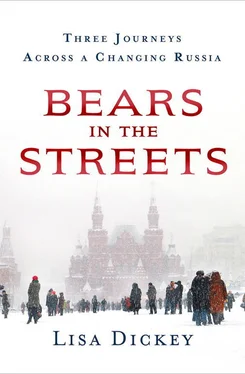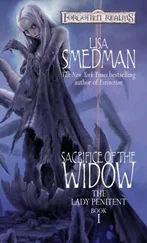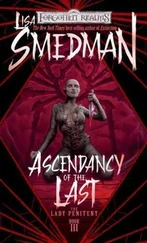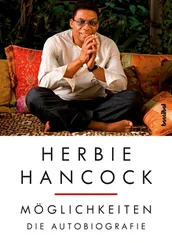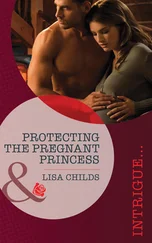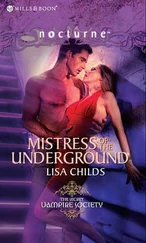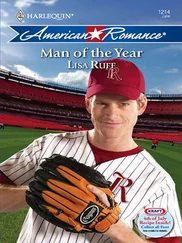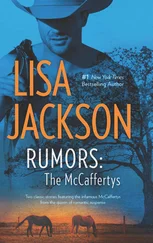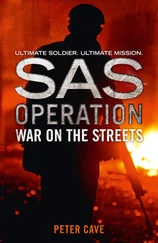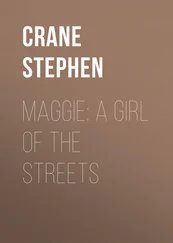“What changed?” I asked.
She chuckled and said, “Democracy.” And though she said it in a joking way, it did seem that whatever remnants of Soviet-era secrecy she’d felt burdened by back then were gone.
“Are you hungry?” she asked. “Let’s eat.” And as if by magic—did this woman always have delicious hot food lying about?—the table was suddenly laden with bowls of steaming beef stew, mayonnaise-drenched salads, and potatoes smothered in butter and fresh dill. Vasily cracked open a bottle of vodka—not samogon this time, but store-bought vodka with a picture of a lighthouse on the label. Just as before, we toasted and drank… and drank… and drank, with Vasily refilling our glasses faster than we could drain them. Eventually, I slowed down as my brain got fuzzy. “Eh, weak American,” Vasily observed, and Valentina shushed him. “They won’t understand that you’re joking!” she said, poking him in the arm.
David and I stayed for a couple of hours, talking and taking pictures, and I told Valentina we’d like to come back once more before leaving Vladivostok. “Call me on my cell phone tomorrow,” she said.
“Ohhh!” I said. “You have a phone now! Fancy!”
“Yes!” she said. “But still no running water!”—which explained the sheet-stomping laundry method. [2] Out of reach of Vladivostok’s water supply system, Valentina and Vasily collected rainwater in a giant barrel for laundry and bathing. For drinking, they drew water from a large nearby cistern that was filled each week by the city.
A couple of days later, David and I went out to the lighthouse for one more visit. This time, interspersed with the chitchat, Valentina revealed that the couple’s time at the lighthouse might be coming to an end. She’d heard rumors that the government was planning to build a bridge from their little peninsula to nearby Russian Island, an undeveloped military preserve. “They have three options for where it would go,” she said, “and one of them is right over our piece of land. If they build it here, we will have to move, but they’ll give us an apartment in town.”
She seemed philosophical about this possibility, saying, “Of course I want to stay here until we’re ready to leave, but if at some point we move to the city, that might not be so bad.” I asked her if Vasily felt the same way. “No,” she said. “He was born here, and he wants to die here.”
As I prepared to visit the couple for a third time, I remembered Valentina’s words. And I found myself hoping against hope that they hadn’t come true yet.
* * *
On September 2, 2015, I took a taxi from the Hotel Teplo in central Vladivostok to the top of that same steep hill south of the city. But this time, the taxi kept on going, as the dirt road was now paved—not to mention lined with new, multistory houses.
I could see the lighthouse way out at the end of the cat’s tail, but that was the only part of the view that looked the same. Scattered across the shorefront, I saw a giant white tent that housed a new café, a smaller restaurant called (in English) the Pit Stop, an outdoor dance floor, a kiosk selling Belgian waffles, several porta-potties, a row of bright green dumpsters, a few dozen yachts and boats in various states of repair, and so many cars and trucks it looked like I’d stumbled onto a used car lot.
The big metal wall was still there, surrounding the houses where Vasily and his brother and their families had lived. No one was in the yard, so I started to walk around the perimeter, looking for the door. I felt sure that, barring some catastrophe, Valentina would be OK. But I was worried about Vasily, who was a regular vodka drinker and heavy smoker and never seemed to eat much of anything. He’d be 71 now, well past the average life expectancy for Russian men, which was 65.
As I walked outside the wall, I couldn’t find a bell to ring or a door to knock. Finally, I noticed a man painting a yacht nearby, so I called out to ask if Valentina and Vasily still lived here. “Yes, I just saw her this morning,” he said. “Bang on the gate. The dog will bark, and they’ll come to see who it is.”
I did as he suggested, and sure enough, a dog started barking and yowling. After what felt like an eternity, the door swung open, and there stood Vasily. I was elated, but had the presence of mind not to shout, “You’re alive!” Instead, I smiled goofily and started to laugh. “Ah, Liza,” he said, and he smiled too.
“It’s been ten more years,” I told him. “So I thought I’d come back and see you.”
“Come in,” he said, and now I couldn’t help myself—I gave him a hug, which seemed to take him by surprise. He chuckled, then turned and started loping toward the house. And then, as I’d dreamed of all summer, he called out, “Mother! We have a guest.”
Valentina came to the door and broke into a grin. “Liza! I was just thinking of you yesterday!”
“Really?” I asked, and my face flushed with pleasure. “Did you realize it had been ten more years, and that I might show up again?”
“No,” she said, “I just happened to think of you.” Then, as if on cue, “Well, let me go get dressed.” And off she went into the house to put on something more presentable.
When she emerged from her bedroom minutes later, wearing a bright pink blouse and olive-green Capri pants, she had a wicked little smile on her face. “Want something to drink?” she asked, then thumped the side of her neck, the traditional Russian signal for alcohol.
She’d been cooking, as usual, and started loading up the table with plates of rice, ground meat cutlets, pickles, and tomatoes. Then she went into another part of the house and came back with a squat little plastic bottle, which turned out, upon closer inspection, to be a shampoo bottle. When she noticed me peering at the label, she said, “We poured the vodka into this.” She offered no further explanation, and I didn’t ask. Then she took a tall can of beer out of the refrigerator—Yarpivo brand, with a brown bear pictured on the front. “I don’t drink vodka anymore,” she confided. “Beer is terrible for you, but I love it.”
The three of us ate and drank, and this time it didn’t simply feel like we were old friends—we were old friends. I started calling Valentina by her nickname, Valya, and we joked about how the “weak American” had, against the odds, managed to find her way back to Vladivostok. We talked about how scared Valya had been that first time, and she said, “Well, we didn’t know who you were! We didn’t know if you were…” She paused.
“Spiiiies?” I asked.
“Yes! Spies!” she said.
“Well, if I’m a spy, I’m obviously a bad one,” I told her. “I’ve been visiting you for twenty years now and haven’t done anything terrible yet.”
There was a two-liter bottle of Coke on the table, which reminded me to ask about the Great Fromagicide. “I heard there weren’t supposed to be any American foods in Russia now,” I said. “But it looks like you can still get Coca-Cola, huh?”
Valya looked at me in shock. “Coca-Cola is American?” I confirmed that it was, and she shook her head in wonderment. Realizing that she probably wasn’t the kind of person who cared a whole lot about imported cheeses, I instead asked her about Vladimir Putin.
“I adore Putin,” she declared. She took my hand and led me into the living room, where a small portrait of the Russian president was nestled among the glassware in an open cabinet. [3] This was a classic Russian shkaf , a large bookshelf/cabinet ubiquitous in Soviet homes. The shkaf was typically stocked with teapots and cups, tchotchkes, framed family photos, and pristine rows of the collected works of writers such as Gogol, Chekhov, and that perennial Russian favorite, Jack London.
Valya picked up the photo and kissed it, then gently placed it back in its spot.
Читать дальше
